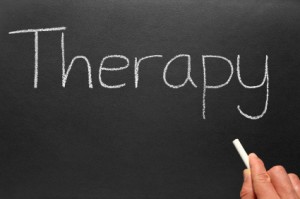I know of no more encouraging fact than the unquestionable ability of man to elevate his life by conscious endeavor. – Henry David Thoreau
Changing addictive behavior can be difficult. The decision to seek counseling or professional intervention is not an acknowledgement of weakness, but a sign of strength in recognizing ones own limitations. Albert Einstein once remarked that
The significant problems we face cannot be solved at the same level of thinking we were at when we created them.
 Counseling offers the opportunity to explore in a safe, nonjudgmental atmosphere, the maps we have created in our life, where they have taken us, and how we might change them to get where we want to go. It is not a mysterious process, but a straight-forward open exchange of ideas that at its core, is about deepening our sense of humanity, connectedness, and understanding of the world around us.
Counseling offers the opportunity to explore in a safe, nonjudgmental atmosphere, the maps we have created in our life, where they have taken us, and how we might change them to get where we want to go. It is not a mysterious process, but a straight-forward open exchange of ideas that at its core, is about deepening our sense of humanity, connectedness, and understanding of the world around us.
Counseling can help address a number of life issues:
- Reduction of addictive behavior
- Inner peace and security
- Securing a fulfilling career path
- Emotional connectedness
- Help someone with an addiction
- Deepen intimacy in relationships
- Sense of purpose and direction in life
- Resolution of past traumatic experiences
How does one go about finding an ideal counselor?
Here are a few suggestions to find a good therapist:
1) What do you want to work on and what outcome do you seek?
Finding the right therapist or counselor largely depends on the issue(s) you (or a family member) would like to work on and the outcome(s) you seek. Like primary care physicians, there are counselors who are generalists, good at solving a lot of issues that people bring to therapy.
But also like medicine, there are those who specialize in helping people with particular problems like addiction, marriage or trauma resolution. If your goal is to explore your inner world with no specific issue that requires specialization, or you are not sure where to start in the therapy process, then a generalist works fine. However, if you know you have a specific issue it makes sense to seek out someone who specializes in that area.
2) What is your reaction to a specific therapist?
Therapists come in all shapes, colors and sizes – and the therapeutic approaches they employ are equally as diverse. What you should know is that for the most part none of this makes much difference. Good outcomes are a result of what happens in the therapeutic relationship which means that the number one criteria for selecting a therapist is your gut reaction to the person.
- Do you connect with them?
- Does what they say make sense?
- Do you believe they have really listened and understood you?
- Do you feel an emotional connection?
- Does their understanding of how change occurs match with yours?
In the end, whether they are a psychologist, psychiatrist, licensed professional counselor, or licensed clinical social worker is not as important as whether you connect with them as a person.
3) How do they deal with emotions in therapy?
Real therapeutic experience comes about when people move developmentally beyond where they are stuck. To do this, a therapist must know how to assess developmentally where you are stuck. Then therapy must encourage advances within and through emotional stages of development, ideally helping you to develop the capacities for optimal mental functioning.
Ask whoever you see to explain their understanding of the role of emotion in therapy, and how what they do leads to real developmental growth and change.
4) Talk therapy only goes so far
It is not uncommon for people to choose a therapist or treatment that perpetuates the problem(s) they came for in the first place. Why? Because we select options based on our existing personality or way that we see the world, and discount or avoid situations that evoke fear or require stepping outside of our comfort zone.
This happens most often when people work with therapists who only rely on talk therapy to solve emotional problems. If you have emotional problems, talk therapy will only get you so far – emotional problems need to be solved by working with a therapist who knows how to work emotionally.
Additional resources
- A good website that provides even more assistance in choosing a competent counselor or therapist is: metanoia.org
- Another useful read by Dr. Kevin Grold on Finding and Evaluating a Private Therapist